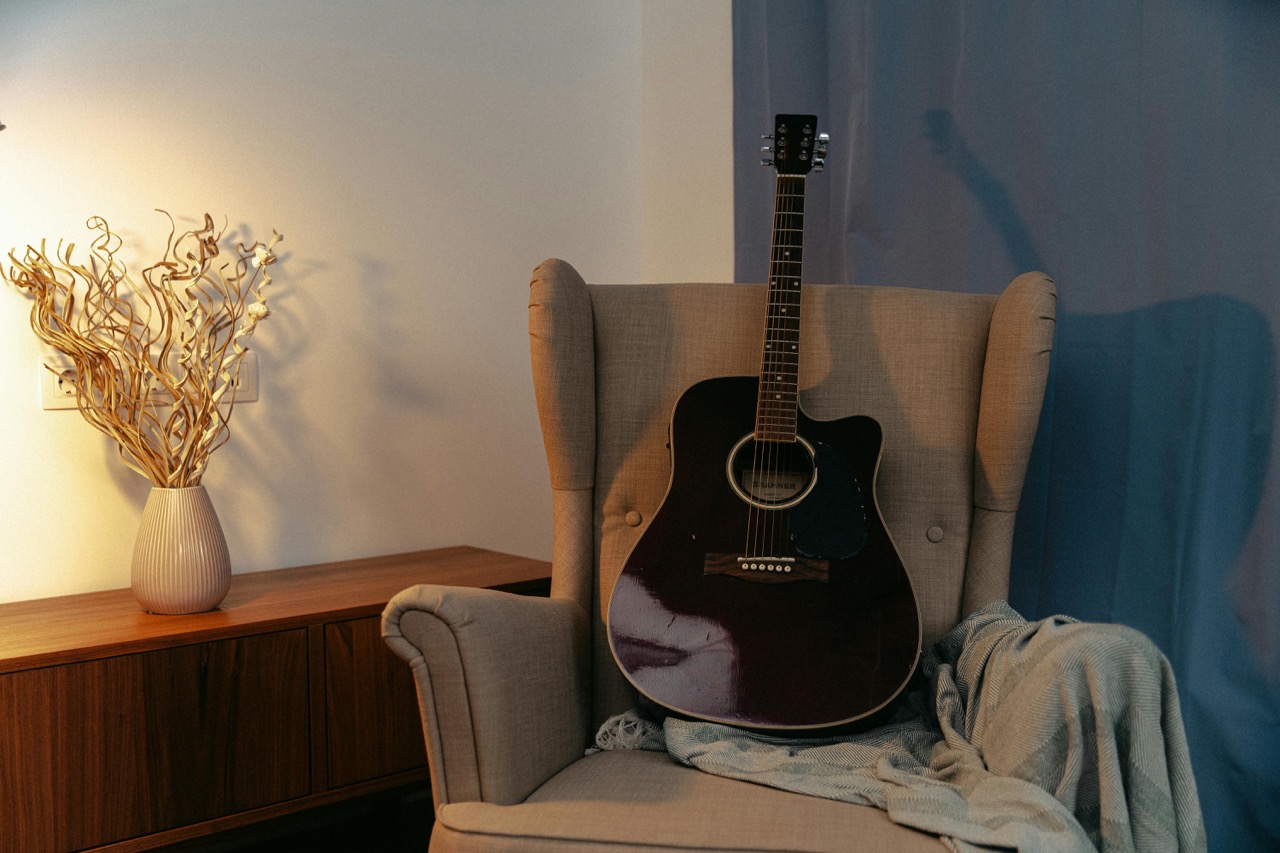
10 Surprising Facts About PTSD You Need to Know
Uncover 10 startling PTSD facts that challenge common beliefs. From delayed onset to surprising triggers, explore how guitar therapy is revolutionizing trauma recovery at Freedom Sounds.

Introduction
Post-Traumatic Stress Disorder (PTSD) affects millions worldwide, yet many misconceptions persist about this complex condition. At Freedom Sounds, we're committed to not only providing innovative guitar therapy for PTSD but also to educating the public about this often misunderstood disorder. Here are ten lesser-known facts about PTSD that might surprise you:
1. PTSD Isn't Just for Combat Veterans
While PTSD is commonly associated with military combat, it can affect anyone who has experienced or witnessed a traumatic event. First responders, survivors of natural disasters, victims of assault, and even those who've experienced severe medical procedures can develop PTSD. At Freedom Sounds, our Frets N' Vets program serves not only veterans but also first responders and their family members, recognizing the wide-ranging impact of trauma.
2. PTSD Can Have Delayed Onset
Contrary to popular belief, PTSD symptoms don't always appear immediately after a traumatic event. In some cases, symptoms may not manifest for months or even years after the trauma occurred. This delayed onset can make it challenging to connect current symptoms with past experiences, highlighting the importance of comprehensive mental health assessments.
3. Children Can Develop PTSD
PTSD isn't limited to adults. Children and adolescents can also develop this condition, often displaying different symptoms than adults. These may include re-enacting the trauma through play, having nightmares about monsters, or showing regressive behaviors. Early intervention, such as age-appropriate music therapy, can be crucial in helping young people process traumatic experiences.
4. PTSD Affects the Brain's Structure
Recent neuroimaging studies have shown that PTSD can actually change the structure and function of the brain. The hippocampus, responsible for memory processing, may shrink, while the amygdala, involved in fear responses, can become hyperactive. Interestingly, music therapy, like our guitar program, has been shown to positively impact brain plasticity, potentially helping to reverse some of these changes.
5. There's a Genetic Component to PTSD
While trauma is the primary cause of PTSD, research suggests that genetics may play a role in susceptibility. Studies of identical twins have shown that genetic factors may account for up to 30% of PTSD cases. This doesn't mean that PTSD is inevitable for those with a family history, but it underscores the importance of awareness and early intervention.
6. PTSD Can Affect Physical Health
PTSD isn't just a mental health condition—it can have profound effects on physical health too. People with PTSD are at higher risk for cardiovascular problems, autoimmune diseases, and chronic pain. The stress-reducing effects of music and guitar playing can potentially help mitigate some of these physical symptoms, promoting overall well-being.
7. Smell Can Trigger PTSD Episodes
While visual and auditory triggers are well-known, the sense of smell can be a powerful and often overlooked PTSD trigger. The olfactory system is closely linked to the parts of the brain that process emotions and memories. At Freedom Sounds, we create a safe, controlled environment for our guitar lessons, mindful of potential sensory triggers.
8. PTSD Can Lead to Positive Growth
While PTSD is a serious condition with many challenges, some individuals report experiencing post-traumatic growth. This phenomenon refers to positive psychological changes that can occur as a result of struggling with highly challenging life circumstances. Many participants in our Frets N' Vets program report not just symptom reduction, but also personal growth, improved relationships, and a newfound sense of purpose through their musical journey.
9. Animals Can Experience PTSD-Like Symptoms
Humans aren't the only beings capable of experiencing PTSD. Studies have shown that animals, particularly those exposed to abuse or disasters, can exhibit symptoms similar to human PTSD. This finding has led to increased awareness of animal welfare and the development of therapies for traumatized animals, some of which incorporate soothing music.
10. PTSD Treatment is Highly Individual
There's no one-size-fits-all approach to treating PTSD. What works for one person may not work for another. This is why at Freedom Sounds, we offer a personalized approach to our guitar therapy program. While we follow a structured 7-week course, we tailor the experience to each individual's needs, recognizing that healing is a unique journey for everyone.
The Healing Power of Guitar Therapy
At Freedom Sounds, we've witnessed firsthand how guitar therapy can be a powerful tool in PTSD recovery. Here's why it works:
- Mindfulness: Learning to play guitar requires focus and presence, helping to ground individuals in the present moment.
- Emotional Expression: Music provides a non-verbal outlet for processing complex emotions associated with trauma.
- Community Building: Our group lessons foster a sense of connection and shared experience, combating the isolation often felt by those with PTSD.
- Neuroplasticity: Learning a new skill like guitar playing can help rewire the brain, potentially counteracting some of the neurological impacts of PTSD.
- Stress Reduction: The act of creating music has been shown to reduce cortisol levels and promote relaxation.
Conclusion: Changing the Tune on PTSD
As we continue to learn more about PTSD, it's clear that this condition is far more complex and far-reaching than once thought. At Freedom Sounds, we're committed to staying at the forefront of PTSD research and treatment, continually refining our Frets N' Vets program to provide the most effective support possible.
By understanding these lesser-known facts about PTSD, we can work towards reducing stigma, improving treatment, and fostering a more compassionate society for those affected by trauma. Whether you're battling PTSD yourself, supporting a loved one, or simply interested in learning more, remember that knowledge is power, and healing is possible.
Ready to explore the healing power of guitar therapy? Contact Freedom Sounds today to learn more about our Frets N' Vets program or to support our mission. Together, we can change lives, one chord at a time.

Support our mission
Freedom Sounds is a non-profit organization dedicated to helping individuals with PTSD recover through guitar playing. Join us on our mission:
- Donate: Your contributions help us provide free guitar lessons and expand our reach.
- Volunteer: Become a guitar instructor and directly impact someone's life.
- Sponsor: Provide guitars for participants or help us open new locations.
- Spread the Word: Share our story to help more people discover the healing power of music.
Contact Us
Contact us for any questions you may have.
If you want to inquire about donating or participating in a lesson, here is the perfect place to do it.
We will get back as soon as we can.

